
Mundo Amazonico
Scope & Guideline
Championing Conservation through Interdisciplinary Insights
Introduction
Aims and Scopes
- Cultural Anthropology and Indigenous Studies:
The journal focuses on the narratives, practices, and resilience of indigenous and local communities in the Amazon, exploring their cultural heritage and contemporary challenges. - Environmental and Ecological Research:
Research on ecological conservation, biodiversity, and sustainable practices within the Amazon region is a core area, highlighting the interaction between human activities and the environment. - Public Health and Socioeconomic Issues:
The journal addresses health issues, particularly in the context of pandemics like COVID-19, and how these affect indigenous populations and socio-economic conditions. - Historical Perspectives:
Exploration of historical events and their impact on current socio-political dynamics in the Amazon, including the colonial past and indigenous rights. - Sustainable Development and Resource Management:
The journal promotes discussions on sustainable practices and management of natural resources, emphasizing the need for environmentally friendly approaches in the region.
Trending and Emerging
- Impact of COVID-19 on Indigenous Communities:
There is a significant increase in studies examining the effects of the COVID-19 pandemic on health, culture, and socio-economic conditions of indigenous populations, highlighting the vulnerabilities and resilience of these communities. - Sociobiodiversity and Food Security:
An emerging focus on the relationships between sociobiodiversity and food practices within local communities indicates a growing recognition of the importance of traditional food systems in sustainable development. - Ethnographic Approaches to Environmental Management:
Recent publications increasingly employ ethnographic methods to explore community-driven environmental management strategies, reflecting a trend towards participatory research methodologies. - Art and Cultural Expression as Resistance:
There is a rising interest in the role of art and cultural expressions, such as music and visual arts, in the context of resistance and identity among indigenous peoples. - Interdisciplinary Studies on Climate Change:
The journal is increasingly publishing interdisciplinary research that addresses the impacts of climate change on Amazonian ecosystems and communities, emphasizing the need for integrated approaches to conservation.
Declining or Waning
- Traditional Ecological Knowledge (TEK):
While once a prominent theme, the exploration of TEK has declined as newer studies focus more on integration with modern scientific practices rather than solely traditional knowledge. - Urbanization in the Amazon:
Previous years showed a stronger emphasis on urbanization issues in the Amazon; however, recent publications have shifted towards more rural and indigenous community perspectives. - Historical Narratives without Contemporary Context:
Historical studies that do not connect to present-day implications or community experiences are appearing less frequently, indicating a preference for research that ties past events to current socio-political contexts.
Similar Journals
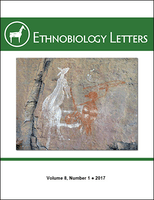
Ethnobiology Letters
Illuminating the Cultural Dimensions of BiodiversityEthnobiology Letters is a pioneering journal in the field of ethnobiology, dedicated to the scientific study and documentation of the intricate relationships between human cultures and biological diversity. Published by the Société d'Éthnobiologie, this open-access journal has been providing an invaluable platform for researchers and scholars since its inception in 2010. Operating under the ISSN 2159-8126, it aims to promote accessibility and dissemination of knowledge across global communities by making its content freely available. Its contributions have garnered recognition in the realms of anthropology and agricultural sciences, achieving notable ranks in Scopus with a percentile standing in the 56th for Social Sciences and 41st for Agricultural and Biological Sciences. By fostering interdisciplinary dialogue and sharing innovative research, Ethnobiology Letters serves as a crucial resource for academics, practitioners, and students engaged in the exploration of the cultural dimensions of biodiversity.
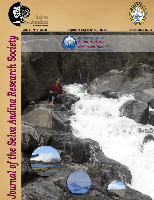
Journal of the Selva Andina Research Society
Illuminating the Wonders of the Selva AndinaThe Journal of the Selva Andina Research Society is a premier open access journal dedicated to advancing the understanding of the rich biodiversity and cultural heritage of the Andean region. Established in 2010 and published by the SOC INVESTIGACON SELVA ANDINA, this journal allows for wide dissemination of research findings to foster collaboration among scholars, conservationists, and practitioners in various related fields. With the ISSN 2072-9294 and E-ISSN 2072-9308, the journal covers a broad spectrum of topics, including ecology, environmental science, anthropology, and sustainable development, thus providing a vital platform for addressing the unique challenges faced by Andean ecosystems and communities. Its open access model ensures that significant findings are accessible to a global audience, promoting knowledge exchange and inspiring future research in these critical areas.
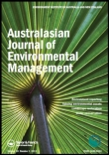
Australasian Journal of Environmental Management
Exploring innovative solutions in environmental management.The Australasian Journal of Environmental Management is a highly regarded publication in the field of environmental studies, published by Taylor & Francis Ltd. With an ISSN of 1448-6563 and an E-ISSN of 2159-5356, this journal serves as a pivotal platform for disseminating innovative research and insights pertaining to the management of environmental resources across Australia and broader geographical contexts. The journal has achieved impressive rankings, including a Q2 classification in Geography, Planning and Development and a Q3 in Management, Monitoring, Policy and Law for 2023, highlighting its relevance and impact within the academic community. Researchers and professionals are encouraged to contribute to its mission of advancing knowledge and practices in sustainable environmental management. With a publication history spanning from 1996 to 2024, the journal remains committed to fostering interdisciplinary collaboration and critical discourse on environmental challenges. While access options may vary, the significance of this journal as a resource for students and practitioners alike cannot be overstated, as it shapes contemporary perspectives on environmental policy and management.
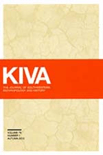
Kiva-Journal of Southwestern Anthropology and History
Advancing Knowledge in Anthropology and HistoryKiva - Journal of Southwestern Anthropology and History is a distinguished academic journal published by Routledge Journals, Taylor & Francis Ltd, that serves as a vital resource for scholars in the fields of anthropology, archaeology, and history. With an ISSN of 0023-1940 and an E-ISSN of 2051-6177, this journal has established itself as a significant avenue for scholarly communication since its inception in 1964. It consistently ranks in the top quartiles, including Q1 in Archaeology and Q2 in Anthropology, reflecting its high impact and rigorous peer-review process. Covering a wide array of topics pertinent to the Southwestern United States, Kiva invites original research articles, reviews, and methodological papers that advance understanding of the region's rich cultural heritage and historical narratives. While currently not open access, its commitment to disseminating quality research makes it an essential reading for researchers, professionals, and students aiming to explore the multifaceted dimensions of southwestern studies.
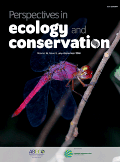
Perspectives in Ecology and Conservation
Championing open access to empower conservation efforts worldwide.Perspectives in Ecology and Conservation, published by Elsevier Science Ltd, is a leading academic journal dedicated to advancing the fields of ecology, conservation, and environmental management. With a Q1 ranking in multiple categories, including Ecology, Management, Monitoring, Policy and Law, and Nature and Landscape Conservation, this journal boasts an impressive standing among its peers, making it essential reading for researchers and professionals. Since its inception in 2017 and running through 2024, it aims to provide innovative perspectives and critical analyses that enhance our understanding and practices in conservation science. The journal is accessible through open access options, facilitating broader dissemination of knowledge. Its commitment to addressing contemporary ecological challenges reinforces its importance in the academic community, promoting sustainable practices and informed policy-making in the face of urgent environmental issues.
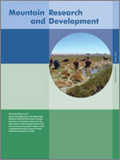
MOUNTAIN RESEARCH AND DEVELOPMENT
Innovative insights for thriving mountain ecosystems.MOUNTAIN RESEARCH AND DEVELOPMENT is a premier open-access journal dedicated to advancing the understanding of mountain environments and communities through rigorous research and interdisciplinary collaboration. Published by the International Mountain Society since 1981, this journal serves as a vital resource for researchers, professionals, and students in the fields of development, environmental science, and environmental chemistry. With a commendable impact factor reflected in its Q2 and Q3 quartile rankings in 2023 across various categories, it offers a platform for innovative studies that address the unique challenges facing mountainous regions globally. As a vital conduit for knowledge exchange, MOUNTAIN RESEARCH AND DEVELOPMENT fosters the dissemination of research findings, insights, and practical applications aimed at enhancing the sustainability and resilience of mountain ecosystems. Its open-access model, implemented since 2009, ensures that research is accessible to a broad audience, contributing to the ongoing dialogue in mountain studies and related fields. For detailed inquiries, the journal is hosted at the University of Bern, Switzerland.

Northern Review
Illuminating the Voices of the NorthNorthern Review is a distinguished scholarly journal published by YUKON COLLEGE, dedicated to advancing research in Northern Studies, including anthropology, environmental science, and cultural studies pertaining to the Canadian North and similar regions. With its ISSN 0820-0300, Northern Review focuses on presenting insightful analyses and fostering interdisciplinary dialogue among scholars, practitioners, and students. Although not an open-access journal, it provides a vital platform for high-quality research that explores unique socio-economic, cultural, and ecological phenomena of Northern communities. With a commitment to increasing the visibility of Northern narratives and issues, this journal plays a crucial role in not only documenting but also understanding the complexities of life in the North, making it an invaluable resource for anyone invested in the future of Northern regions.

REVISTA CHILENA DE HISTORIA NATURAL
Advancing Knowledge in Biodiversity and EcologyREVISTA CHILENA DE HISTORIA NATURAL, published by the SOCIETAD BIOLOGIA CHILE, is an esteemed open-access journal dedicated to the fields of Agricultural and Biological Sciences as well as Environmental Science. With an ISSN of 0716-078X and an E-ISSN of 0717-6317, the journal has maintained an impactful presence since its inception in 2000, offering unrestricted access to vital research that influences the biodiversity and ecological initiatives in the region and beyond. Positioned in the Q2 quartile for Agricultural and Biological Sciences and Q3 for Environmental Science as of 2023, REVISTA CHILENA DE HISTORIA NATURAL exemplifies its commitment to high-quality and influential research, evidenced by its respectable ranking in Scopus—89th percentile for Agricultural and Biological Sciences and 131st in Environmental Science. Operated out of Santiago, Chile, and covering a wide range of topics with a converging publication timeline from 2002 to 2024, this journal serves as a crucial resource for researchers, professionals, and students looking to deepen their understanding of natural history and its implications for future ecological preservation.

PROCEEDINGS OF THE LINNEAN SOCIETY OF NEW SOUTH WALES
Unveiling the Wonders of Flora and Fauna Through ResearchPROCEEDINGS OF THE LINNEAN SOCIETY OF NEW SOUTH WALES, ISSN 0370-047X, is a prestigious journal published by the Linnean Society of New South Wales, dedicated to the advancement of knowledge in the fields of natural history, ecology, and biodiversity. Established in the mid-20th century, this journal serves as a vital platform for reporting original research, reviews, and discussions on various aspects of Australian flora and fauna, along with broader contributions to environmental science. Though the journal is not open access, it remains an important resource for researchers, students, and professionals seeking to engage with high-quality studies that inform conservation efforts and ecological understanding in the region. The journal's historical significance is underscored by its coverage of pivotal research from 1980 to 2015, fostering ongoing dialogue within the scientific community and promoting the values of the Linnean Society's commitment to natural history scholarship.
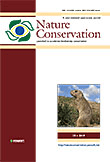
Nature Conservation-Bulgaria
Connecting local efforts with global conservation challenges.Nature Conservation-Bulgaria is a distinguished peer-reviewed journal published by PENSOFT PUBLISHERS, dedicated to advancing the field of conservation through a comprehensive exploration of ecological and environmental issues. Since its inception in 2012, this Open Access journal has cemented its position as an essential resource for researchers, professionals, and students interested in the complex dynamics of ecosystems and biodiversity conservation. With an impressive Q2 ranking in both the Ecology, Evolution, Behavior and Systematics and Nature and Landscape Conservation categories, the journal showcases significant contributions to ecological scholarship, reflecting its commitment to vibrant and impactful research. The journal's coverage extends from 2012 to 2024, and it is indexed in Scopus, where it ranks in the 63rd percentile for key areas within Agricultural and Biological Sciences. With its base in Bulgaria, the journal also aims to highlight regional conservation efforts while maintaining global relevance, making it an indispensable platform for disseminating vital knowledge and fostering collaboration across the scientific community.